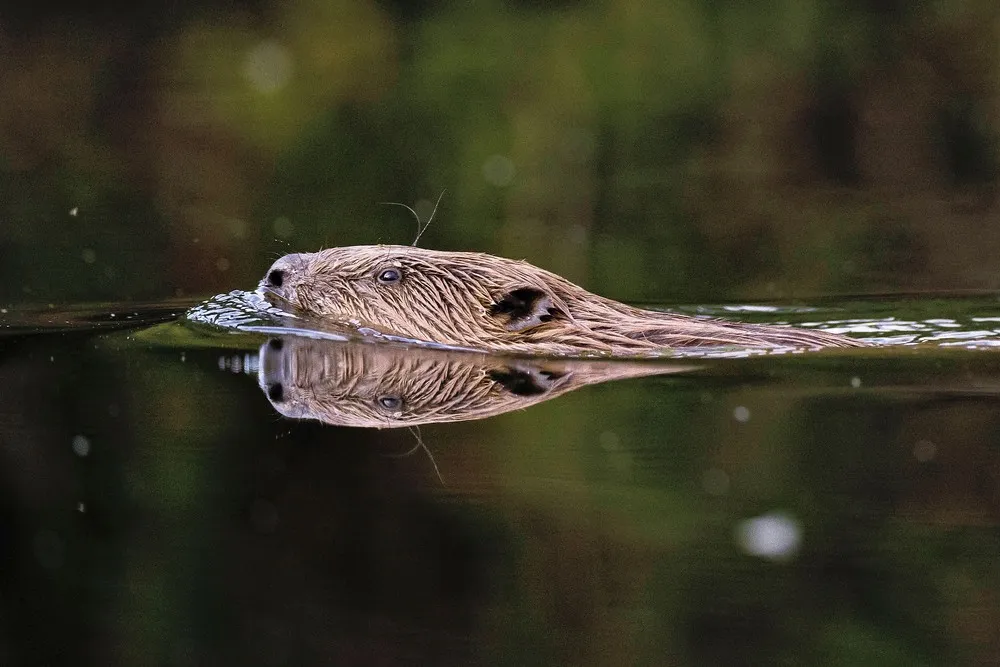|
A beaver swims along a river on July 20, 2023 in Kent, England. The re-introduction of beavers into managed estates and private land across the UK has gathered momentum over the last few years. In 2002, two beaver families were released into a contained colony at Ham Fen nature reserve in Kent. Subsequent flooding of the reserve led to their escape and combination of these escapees and rumoured ‘illegal’ beaver releases into the river systems has led to an established population that now live in the river Stour catchment area. Proponents of re-wilding projects have welcomed the beavers pointing to the environmental benefits, but the trend is concerning farmers who worry about the negative impacts the animals could have on their land. Beavers shape their environment, felling trees which opens woodland canopy, increasing biodiversity, but they can also be damaging if the wrong trees are felled. As well as building lodges across rivers beavers also burrow into riverbanks with the entrances submerged, digging upwards into the bank creating chambers above water level along the side of riverbanks, often under farmers’ fields. There have been instances of farm machinery falling through fields into burrows that can lie just under the surface. Assessing and managing these conflicting views is the East Kent Beaver Advisory Group, (EKBAG). Following meetings with farmers the results of a census to ascertain beaver numbers on the Stour and the suitability of where their habitats are located, are being collated. The animals gained legal protection in the UK in October 2022, however ministers and MPs, including MP Sir Robert Goodwill, chair of DEFRA, have been urged to review their protected status in England. Mr Goodwill is calling for something similar to the “German model” which would allow local communities to control beavers without unnecessary bureaucracy. (Photo by Dan Kitwood/Getty Images)
|

